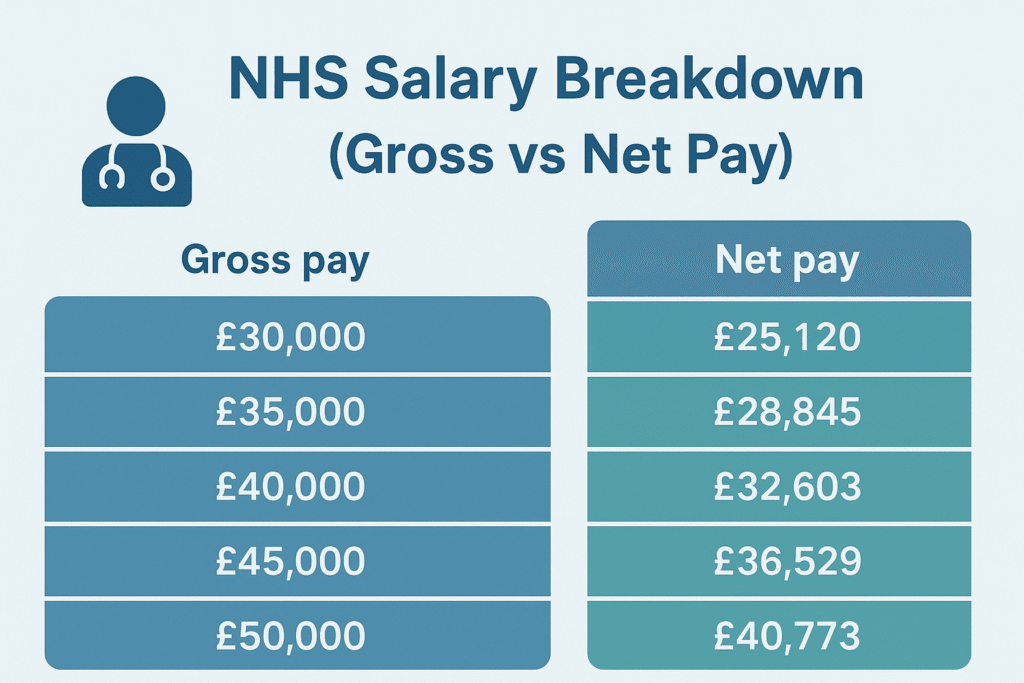Every NHS employee receives a gross salary, but your net pay (take-home amount) is what lands in your bank.
Let’s break down the difference and see how each element affects what you actually earn.

What Is Gross Pay?
Gross pay = Your base salary (Band + Step) + any allowances or overtime.
Includes:
- Basic NHS pay
- High-cost area supplements (London weighting)
- On-call or night shift pay
- Overtime
It does not include tax or pension deductions.
What Is Net Pay?
Net pay = Gross Pay − Deductions
This is your actual take-home amount after:
- Income Tax
- National Insurance (NI)
- NHS Pension
- Salary Sacrifice schemes
Example Breakdown (Band 6 Step 2 – 2025)
| Component | Amount (£) |
|---|---|
| Gross Pay | 37,350 |
| Pension (9.8%) | −3,662 |
| Income Tax | −3,250 |
| National Insurance | −2,000 |
| Net Pay (Annual) | £28,438 |
| Monthly Take-Home | £2,370 |
Key Differences Between Gross & Net Pay
| Category | Gross Pay | Net Pay |
|---|---|---|
| Definition | Total before deductions | Amount after all deductions |
| Shown On Payslip | Top line | Bottom line |
| Tax Applied? | No | Yes |
| Pension Deducted? | No | Yes |
Why It’s Important
- Loan or mortgage applications use your gross pay.
- Personal budgeting uses your net pay.
- Understanding both helps you plan better for promotions and overtime.
More Topics
NHS Pay Bands Overview (Band 1 to Band 9)
How NHS Take-Home Pay is Calculated
FAQs
Q1: Are overtime payments part of gross or net pay?
They’re added to your gross pay and taxed before reaching net pay.
Q2: Why does my net pay vary monthly?
Because of variable overtime, tax thresholds, or deductions.
Q3: Can salary sacrifice reduce tax?
Yes — schemes like cycle-to-work reduce taxable income.
